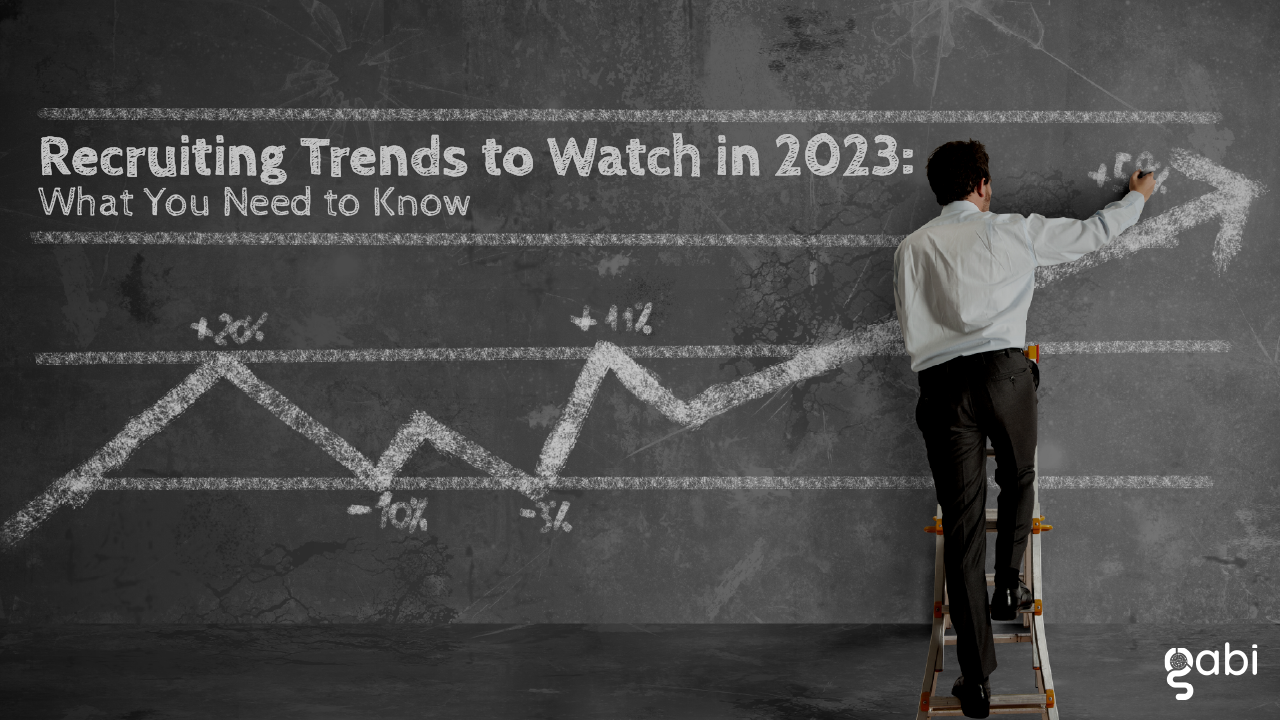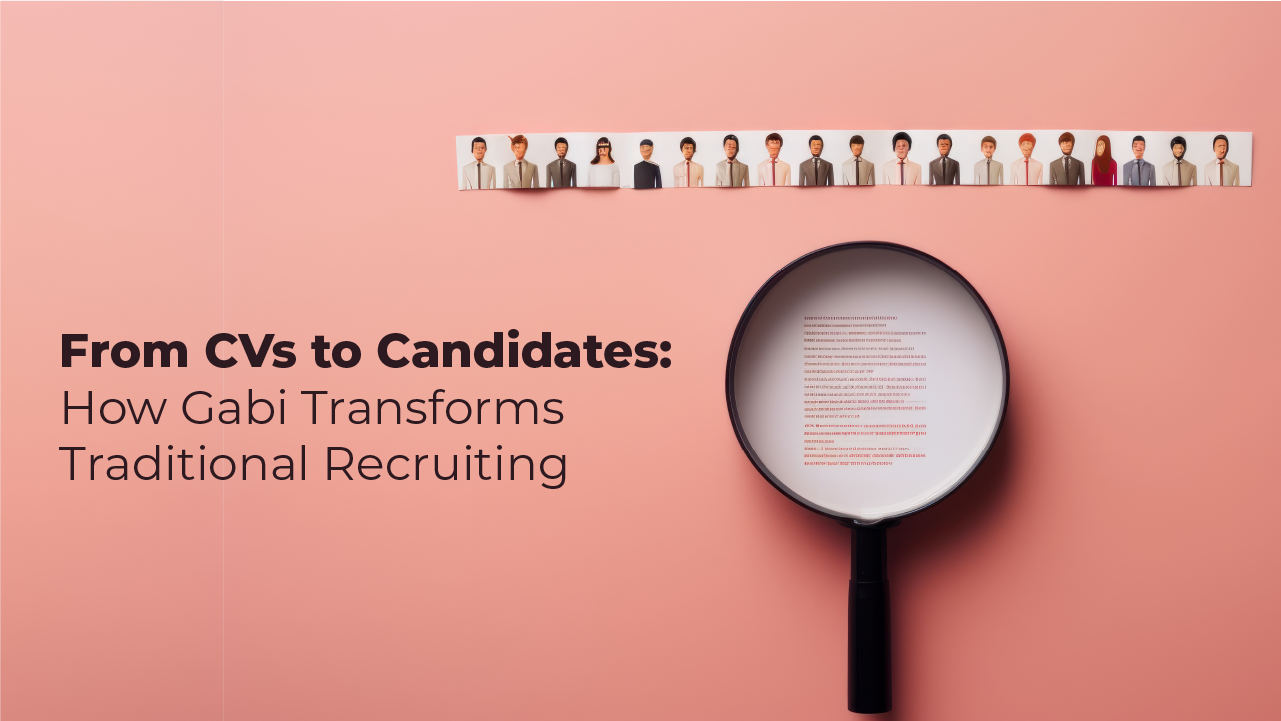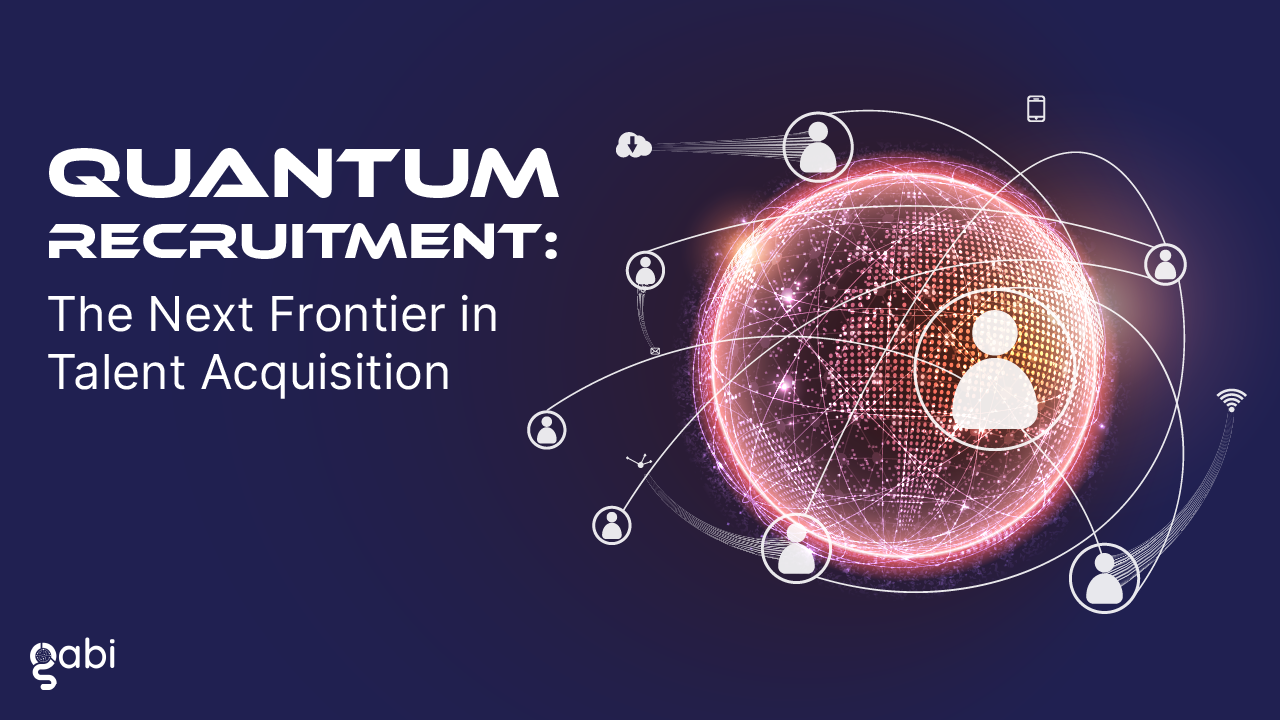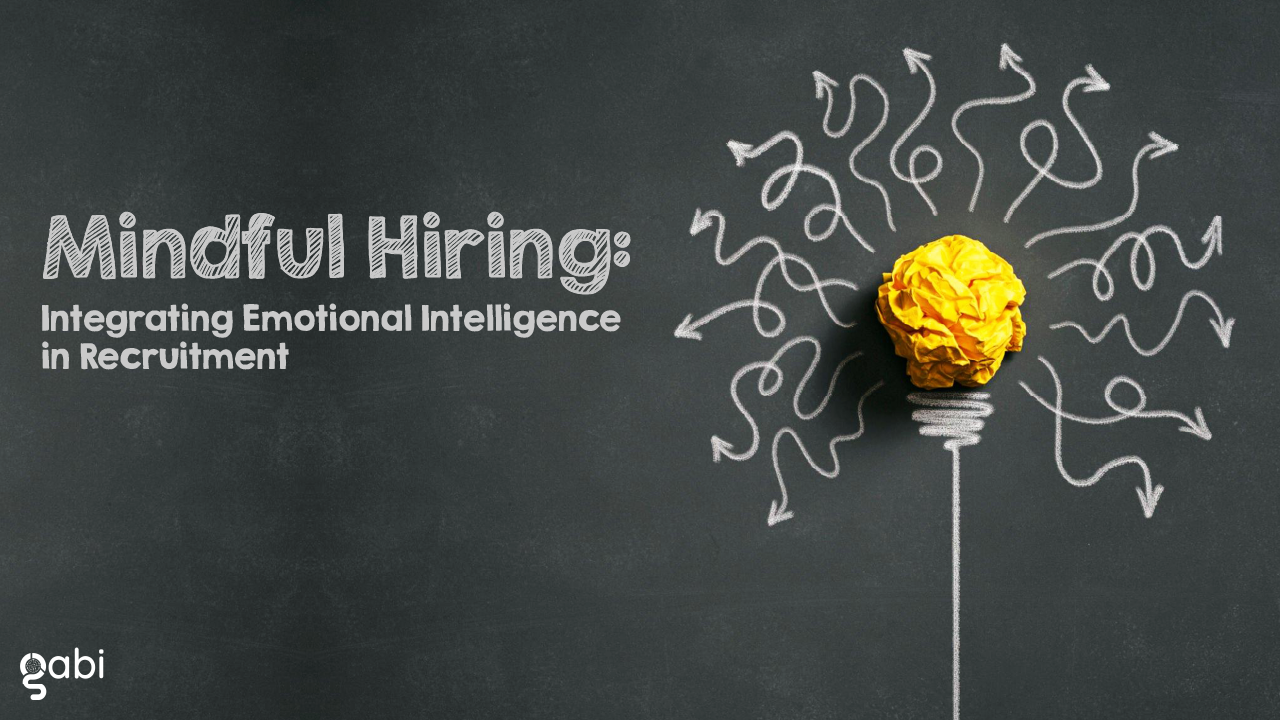There’s no secret that the job market is constantly evolving, and so are recruiting trends and strategies. The past years have been a good example of the constantly evolving landscape, following the COVID-19 pandemic and recent job layoffs. It’s critical to stay on top of the curve and comprehend these new trends whether you’re hiring managers, recruiters, or job seekers.
Imagine that you’re an HR manager searching for potential candidates to fill a crucial role in a tech-related field. In the past, you might have relied on traditional methods, such as manually reviewing resumes and conducting in-person interviews. Yet, that should no longer be the case, especially in tech fields. Since the demand is so high, you might receive hundreds of applications.
It’s really hard to keep track of them manually and even assess skills individually for each candidate. Well, all of those processes are automated by AI-powered technology, which can get the job done faster and more efficiently. This is one of the recruiting trends shaping the future of hiring decisions.
Many businesses are changing the way they find and hire talent in 2023. In this article, we’ll examine the top hiring trends to watch in 2023 and delve into what you’ll need to survive the shifting recruitment environment.
1. Streamlining the Hiring Process with Artificial Intelligence
Automation and artificial intelligence are revolutionizing recruitment trends, allowing HR professionals to streamline hiring processes, mainly repetitive tasks. This way, they can focus on decisions and efforts that need the human touch. Research reveals that 79% of large employers are using AI in some form during hiring.
Artificial intelligence is mostly used for talent acquisition or interview processes, as 69% of them use it to communicate with potential candidates. 64% and 52%, respectively, use AI for resume screening and candidate sourcing. Let’s take a look at some ways AI is used for recruiting talent:
- Faster Resume Screening: It can take a lot of time to sift through a large pool of resumes. AI-powered tools make it easier to analyze resumes, extract relevant data, and match candidates with job descriptions and requirements. This tool not only saves time but also ensures a more efficient and unbiased screening process.
- Automated Candidate Sourcing: Many HR managers struggle to find qualified candidates. New AI-enabled HR technology allows them to comb through large databases, job boards, and social media sites. Hiring teams can expand their talent pools and find talent easier by identifying candidates based on specific criteria, such as skills and experience.
- Virtual Interviews: Recruiters can save time and resources with automated video interviews. They can use AI-powered platforms to evaluate candidate responses and body language using NLP and then get insightful data to evaluate the best talent.
2. Data-Driven Recruitment for Better Decision Making
Another trend that is picking up steam is data-driven hiring. Recruiters are using analytics and insights to guide their decisions during hiring processes. They can easily optimize and enhance their processes by using performance analytics. This way, HR teams evaluate the performance of various recruitment strategies, gauge the efficiency of their sourcing channels, and make more data-driven decisions.
Other sets of data, such as predictive analytics, help them determine the most effective sourcing channels, forecast candidate suitability, and predict turnover rates. As a result, HR teams can make proactive decisions and stay ahead in the talent acquisition game.
3. Embracing Remote Work and the New Reality
The COVID-19 pandemic has accelerated the shift toward remote work, and this trend is expected to continue in 2023 and beyond. To accommodate this new workforce dynamic, organizations must modify their recruiting strategies.
HR managers need to create effective virtual onboarding procedures as remote work becomes the norm. This includes creating a sense of belonging within the company and giving remote workers the tools and resources they need to succeed. Try to train your employees to use the same platforms, follow the guidelines and participate in team activities, even though they’re online.
The growing demand for remote work opportunities also implies flexible work schedules. Some growing recruiting trends include providing flexible schedules, offering remote work options, and ensuring work-life balance.
4. Redefining Workplaces With Diversity, Equity, and Inclusion
Diversity, Equity, and Inclusion (DEI) have become one of the top priorities for business leaders, shaping the future of recruiting trends. Candidates, particularly millennials and Gen Z, prioritize diversity when considering potential employers.
You can create different themed events in your organization, create strict guidelines that reduce human bias, and encourage employees to express themselves. Not only you can draw in a larger talent pool, but you create a diverse workforce that brings together a range of viewpoints, concepts, and experiences. This way, you boost innovation, creativity, and adaptability within your company.
5. Focusing on a New Face of Recruitment Marketing
Recruitment marketing has evolved beyond simply posting job listings. Following the latest recruiting trends, marketing is now about promoting your employer brand and giving employees room to grow. To entice top talent, HR managers are creating and promoting their brands across all platforms, and even turning to social media recruiting.
To shape their brand image, they emphasize the business’s mission, values, culture, and employee benefits. One of their efforts includes showcasing employee growth opportunities. It’s crucial to provide and promote opportunities for ongoing learning if you want to draw in and keep high-performing people.
Conclusion
2023’s recruitment landscape is being shaped by AI automation, data-driven decisions, remote work normalization, amplified emphasis on Diversity, Equity, and Inclusion (DEI), and evolving recruitment marketing. These trends are making hiring more efficient, strategic, inclusive, and reflective of today’s societal shifts.
To attract top talent and stay ahead of the competition, HR managers must embrace the most recent hiring trends.





